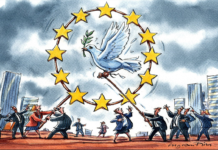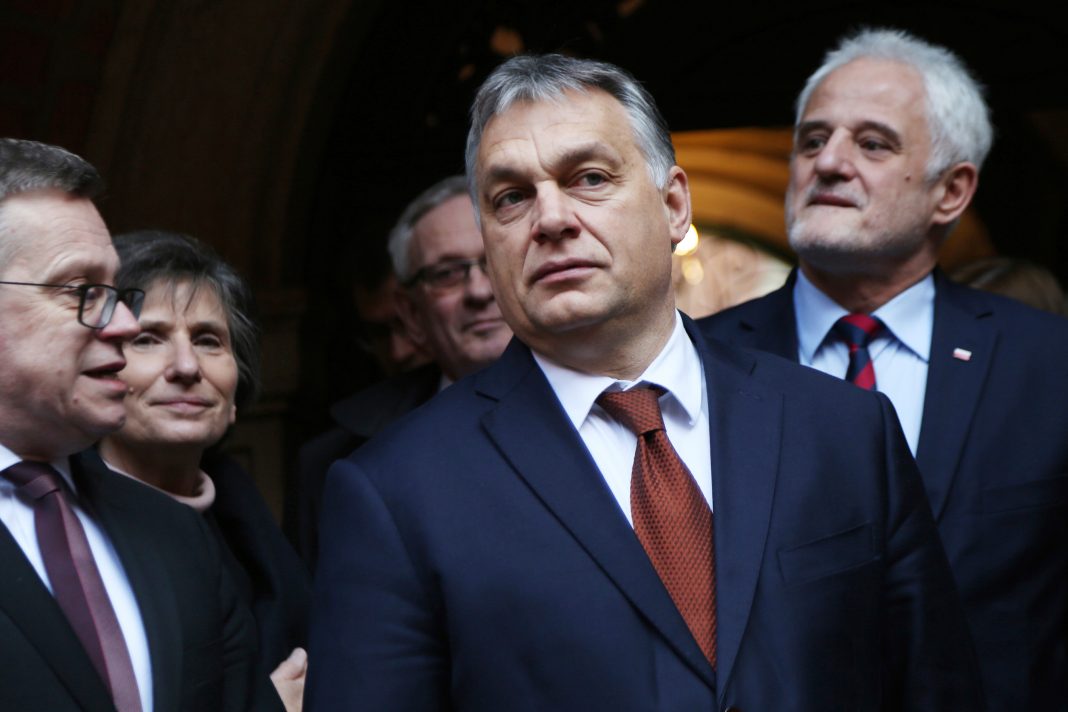The Financial Times sheds light on a “new elite” that is emerging in Hungary, based on Orban’s power to divert and influence the way European and governmental funds are distributed to contractors, with Mr. Lorinc Meszaros, a close associate and childhood friend of Mr. Orban, having registered a better business growth rate than tech giant Facebook. Mr. Meszaros was a gas fitter with no business experience just a couple of years ago. German publication Spiegel cited dismissed deputy editor-in-chief Márton Gergely of Népszabadság newspaper saying that "freedom is in jeopardy in Hungary," after the publication was closed by its Austrian owner, which also had a loan with a state owned bank.
This brazenness from the Prime Minister is reiterated in a recent Direkt36 investigative piece which cites an anonymous source close to Orban saying that “he’s fucking bored” with domestic politics and enjoys the international political arena much more. Transylvania, which is home to a sizeable Hungarian minority, is especially important for Orban and Fidesz because it may be an electoral buffer between any possible election upset from the opposition. There are 363.748 potential voters with no Hungarian address, according to this official statistic. In 2014, Fidesz’s two-thirds parliamentary majority resulted from the one extra seat the party gained from the dual citizens living abroad. Eurotrans Foundation (Eurotrans Alapítvány), a RMDSZ controlled foundation has already helped register 35.000 ethnic Hungarians with dual citizenship living in Romania for the 2017 parliamentary elections.
While helping these people to understand the legal requirements that derive from casting your vote as a dual citizens is not in any way condemnable, the fact that it is under direct control of RMDSZ, which is fiercely loyal to Fidesz and the fact that according to chairman Zoltán Levente Nagy, the foundation does not recommend sending the ballot via post, but rather handing it to Eurotrans which will in turn send it to Hungarian diplomatic missions, undermines the credibility of this democratic process. There are no representatives of either Jobbik or MSZP, the biggest two opposition parties involved in the elections to supervise the entire process.

Princeton professor Kim Lane Scheppele told the Budapest Beacon that the results of the 2010 parliamentary election, where Fidesz got 98% of the votes in neighboring countries like Romania, was “North Korea voting. There’s no election in which you get that percentage of the vote for the governing party. All the polls that were being taken in Romania, in the community of Hungarian citizens there, showed that Jobbik would probably get 20 percent of the vote, and Jobbik got nothing. Which makes me wonder, what happened to the Jobbik vote”?
So what happened to the Jobbik vote and for that matter, the rest of the opposition? The simple answer is that Fidesz and Viktor Orban are using the exact playbook in Transylvania that they are using in Hungary, on a smaller scale, in order to gain influence, secure loyalty among local political and media entities and ensure electoral success and the perpetuation of the party. The first step is securing financial dependency to Fidesz of influencers and decision-makers within the region, by channeling money though different sophisticated means.
The Orban government earmarked 100 million EUR for Hungarian NGO’s and religious entities based in Romania, the biggest such budget after 1990. The largest part of this budget (86 million EUR) is allocated to the Transylvanian Reformed Church (Erdélyi Református Egyházkerület). Orban is funneling these large sums of money through mammoth foundations that are under RMDSZ control, which bind the already two intertwined organizations further. This makes RMDSZ much more dependent of Fidesz, more susceptible to pressure and much more likely to preach Fidesz’s electoral message, rather than opting to just encourage Hungarian citizens on Romanian soil to go out and vote and explain and discuss all of the electoral options on the ballot.
A show of unflinching loyalty by Kelemen Hunor, the chairman of RMDSZ, was displayed during a recent visit of MSZP representatives Gyula Molnár and Gábor Karácsony to Transylvania, to meet him. Immediately after the meeting, Hunor said to a local media outlet that their visit “was a waste of time”. Hunor also said in another interview that the only two political parties that his organization will not have any sort of line of communication are Jobbik and DK. The reference to Jobbik is peculiar, firstly because Jobbik expressed roughly the same ideas as Fidesz in terms of supporting Hungarian minorities abroad and, at the same time, it is on course of reforming its image, from a far-right party, to a more centrist party, as the author of the above mentioned Hungarian Spectrum article acknowledges. This simply means that Hunor sees in Jobbik Fidesz’s main contender and he is just reaffirming his loyalty to Orban.
One thing that Orban and Hunor do have in common is that both of them have sport facilities financed by the Hungarian government in the towns where they spent their childhood. While Victor Orban is famous for the 3,816 seats Pancho Arena built in his native Felcsút, which has roughly 1.800 inhabitants, the Hungarian government helped finance the Ice Hockey Academy in Cârţa, Hunor’s native town, via Mens Sana, a foundation owned by two Roman-Catholic churches that will receive 2.6 million EUR from the 100 million EUR budget.
Another one of the foundations that centralizes and redistributes the funds is Comunitas. According to its own statements published on their website, important sums of money reached several media entities in Romania that address mainly the Hungarian minority living there. This is the second step in Fidesz’s playbook: securing long term influence by indirectly controlling the media and pushing a neutral or even a positive narrative about the party and its agenda. What is more concerning is that it seems Fidesz is having a very calculated, pragmatic approach. According to this Atlatszo Erdely report, Fidesz has no ideological leaning when it comes to giving financial support to Hungarian language portals and publications, which is an intelligence strategy if one needs to adjust the perception of the Hungarian community towards certain topics of importance.

Orban’s heavy hand was felt by Hugó Ágoston, the editor responsible for maszol.ro‘s op-ed page. Hungarian Spectrum reported back in 2017 his case, saying that Ágoston believed he was fired because of his “criticism of the Hungarian government’s anti-democratic policies, especially its poisonous hate campaign and its treatment of the media, in particular the elimination of Népszabadság.” Prior to his dismissal, another journalist who refused to publish an article on Péter Szijjártó’s “instructions” to Hungarian diplomats to boycott Romania’s national holiday was fired.
The third and final step is normalizing and distracting the public from this level of pressure and corruption by sowing fear and creating monsters that threaten the very existence of Hungary, with George Soros being key to this strategy, especially in Hungary itself. The level of apathy by Hungarian citizens and the brazenness of the Prime Minister may be explained by the fact that Hungarians had become immune to the corruption of the ruling elite while their attention is being manipulated with exaggerated narratives. While this is not necessarily happening locally in Transylvania yet, it may be a tactic waiting to be deployed in the future, when and if Fidesz’s has a more solid base to stand on, in terms of controlling the media, the Hungarian political class in Romania and the hearts and souls of ethnic Hungarians living in Transylvania.
What should be noted by the voters in the upcoming parliamentary elections living in Transylvania is that Hungary itself has dropped ten points in the last decade according to the yearly Corruption Index compiled by Transparency International. Hungary is situated bellow neighboring countries such as Romania, Croatia, and Poland, not to mention Germany or Austria. This factor also has to do with the massive exodus of talent from Hungary to Western Europe, in search of a more competitive and fair environment, not only higher wages. As this Carnegie Europe report notes, this exodus of mostly young people, disproportionately better educated than the median national level of their respective Eastern and Central European native countries, gives “the corrupt elites a life-line. The last thing these elites want is a vibrant, educated, civil society that will demand change, transparency, accountability and above all a vibrant democracy.”
Sometimes, a vibrant democracy means change.






















